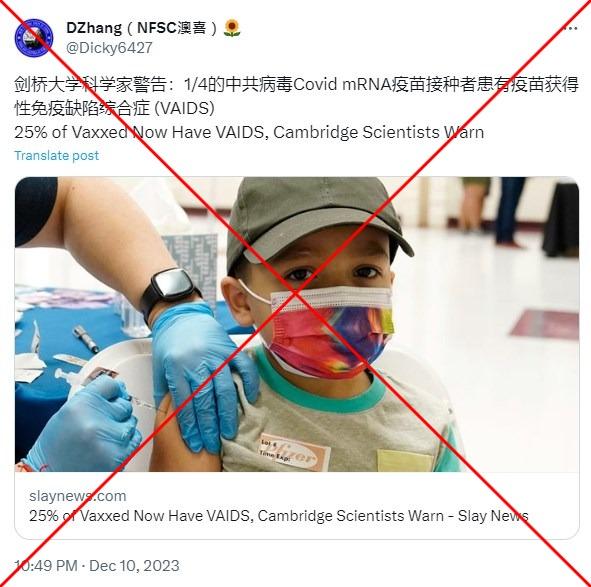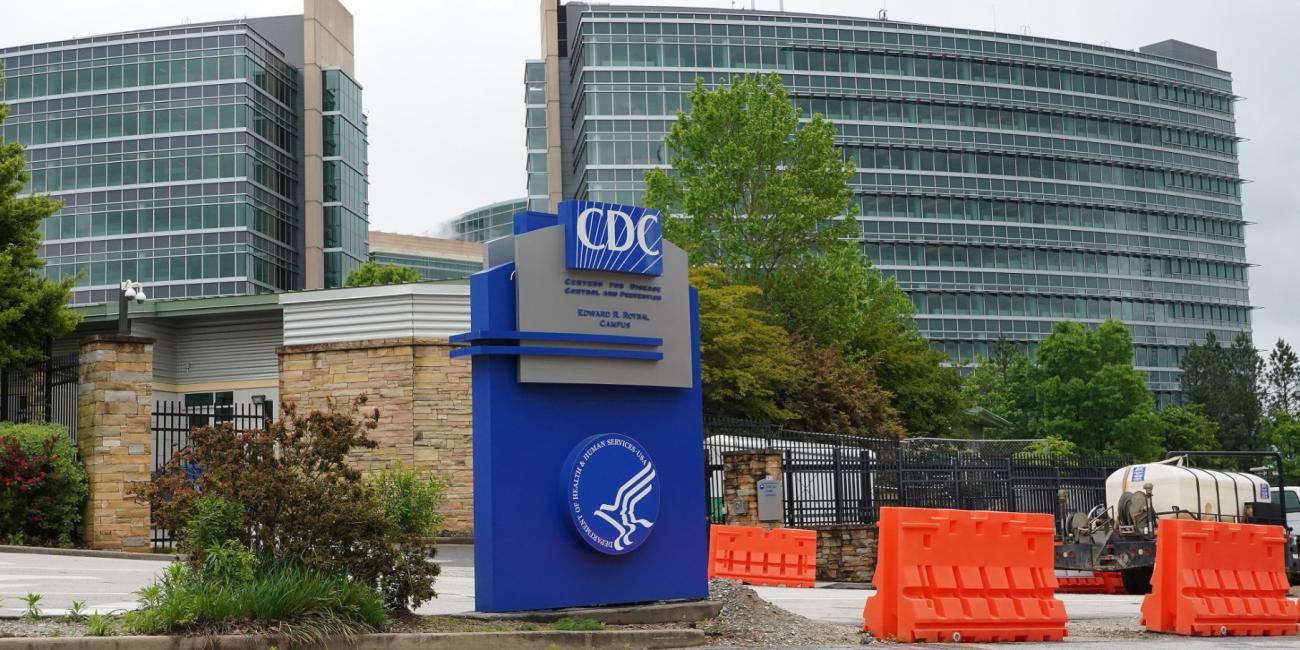
Experts rebuff recirculating claim that Covid mRNA vaccines 'weaken immune system'
- This article is more than two years old.
- Published on January 3, 2024 at 09:57
- Updated on January 4, 2024 at 05:23
- 2 min read
- By Tommy WANG, AFP Hong Kong
"Cambridge scientists warn: a quarter of CCP-Covid mRNA vaccine recipients have vaccine-acquired immunodeficiency syndrome (VAIDS)," reads a simplified Chinese post shared on December 10, 2023, on X.

The X post shared an article published on Slay News, a platform that AFP has previously fact-checked following a similar false claim.
The article says one in four people who had received Covid mRNA vaccines had subsequently developed an "unintended immune response" that was "created by a glitch".
The claims also appeared on The People's Voice, and GNews, a site reportedly affiliated with a media group owned by Miles Guo (archived link). AFP has previously fact-checked the sites here and here.
A similar claim was also shared in multiple languages on X and Facebook, including English here and here; Japanese here; and Arabic here.
Independent experts say VAIDS -- a term used in debunked claims to refer to a weakening of the immune system allegedly caused by mRNA vaccines -- does not exist.
"There is no VAIDS," said Rachel Roper, professor of microbiology and immunology at East Carolina University, in an email in October 2023. "All data worldwide show that Covid vaccines save lives and do not increase deaths" (archived link).
Jason McKnight, clinical assistant professor at the Texas A&M College of Medicine, also dismissed the claim, saying in December 2021: "There is no such thing as vaccine acquired immunodeficiency syndrome or VAIDS (archived link).
"The claim that antibody levels decreasing over months supports the presence of VAIDS is untrue; it's simply a natural phenomenon we see with the immune system."
'Made up' findings
The UK study referred to in the false posts was titled "N1-methylpseudouridylation of mRNA causes +1 ribosomal frameshifting", however, it did not claim that vaccination causes immunodeficiency (archived link).
Its authors -- who were based at UK universities including Cambridge and Liverpool -- told AFP that the claim in the posts was "simply made up."
The study, which examined the effects of Pfizer's mRNA vaccine on 21 people, found that one-third of participants subsequently produced unintended proteins.
However, the study's lead author, James Thaventhiran, an immunologist at Cambridge University, told AFP on December 20, 2023, that "humans regularly encounter unintended proteins and generate harmless immune responses" (archived link).
"Our latest study does not affect the safety assessment of existing mRNA COVID vaccines," he said. "The data are clear: there is no evidence linking unintended proteins and harmful immune responses."
Lance Turtle, a co-author of the study, also said the claim circulating online had no basis (archived link).
"[This statement] is simply made up," the clinician scientist from the University of Liverpool told AFP on December 20, 2023.
"There was absolutely nothing about immunodeficiency in our study…There's nothing immunodeficient about this, it is the immune system responding to a foreign protein."
AFP has since debunked related claims here and here. It has also fact-checked other inaccurate claims related to Covid-19 and vaccines here.
Copyright © AFP 2017-2026. Any commercial use of this content requires a subscription. Click here to find out more.
Is there content that you would like AFP to fact-check? Get in touch.
Contact us




